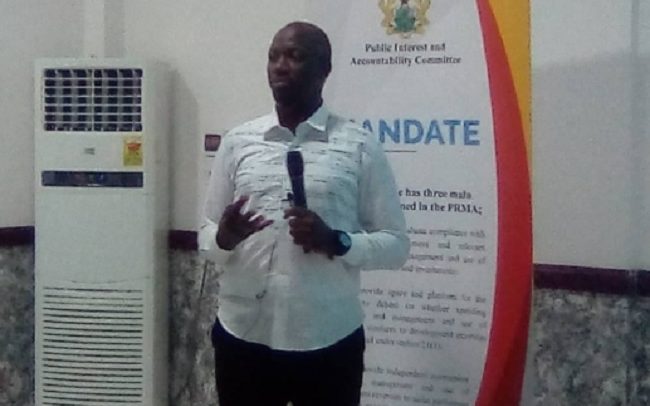Nasir Alfa Mohammed, Vice Chairman of PIAC
The Public Interest and Accountability Committee (PIAC) has praised the government for allocating a considerable portion of petroleum earnings to the improvement of the country’s road infrastructure in 2022.
According to PIAC, out of the Annual Budget Funding Amount (ABFA) of GH¢3,829.9 million for the year 2022, GH¢3,103.81 million, representing 70.35%, was used for the development of critical infrastructure in the road sector.
“The committee commends the government for the significant investment of petroleum revenue in many road projects across the country and looks forward to effective supervision that will deliver quality work for the benefit of citizens,” PIAC said in its 2022 annual report.
Agriculture, physical infrastructure, and service delivery in education and health are the areas designated by Parliament to be used for the government’s petroleum revenues for the 2020-2022 fiscal year.
Others include the construction of road, rail, and other key infrastructure, as well as industrialisation.
However, the report stated that only GH¢9.29 million out of GH¢216.3 million was allocated to the four prioritised areas.
The amount disbursed was used for preparatory work towards the mining of the Gyumerane –Santrokofi Akpafu iron ore concession and development of Ghana Integrated Iron and Steel Development Corporation (GIISDEC) strategy master plan, among others.
The 50-kilometer Branka-Otuokwai-Kumeso-New Abirem road, the 40.3-kilometer Amantena-Wiawso-Senkye road, and the 15.40-kilometer Seketia-Goka Feeder road are among the key projects funded with the ABFA in 2022, the report revealed.
The monies were also utilised to finance road improvements such as upgrading, asphaltic overlay, construction, rehabilitation, resealing, and reshaping, among others.
However, the report underlined the need for the Ministry of Roads and Highways to name projects in such a way that institutions like PIAC can monitor and have enough information on these projects.
These areas include consultancy services, construction of some defected roads in Greater Kumasi in the Ashanti Region.
By Ebenezer K. Amponsah


